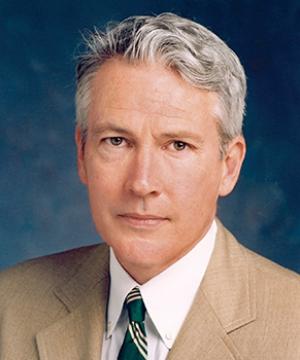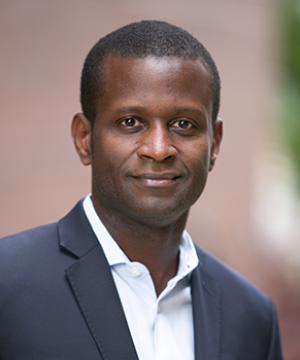What Is a High Crime? Columbia Law Experts Demystify the Impeachment Proceedings
Columbia Law experts explain how impeachment works, what is a high crime or misdemeanor, and what other legal and constitutional governance issues impeachment raises.
Only two presidents in American history—Andrew Johnson and Bill Clinton—have been impeached by the House of Representatives, and only one other, Richard Nixon, faced an impeachment vote by the full House. This week, the House Judiciary Committee drafted articles of impeachment that charge President Trump with abusing his power and obstructing Congress, following the House Intelligence Committee's investigation into President Donald Trump’s dealings with Ukraine. As the impeachment proceedings continue to dominate the news, Columbia Law experts explain what to expect, provide context for understanding the events, and consider what implications the impeachment could have for constitutional governance.
Are we watching a political process or a legal one?
Philip Bobbitt, Herbert Wechsler Professor of Federal Jurisprudence: The biggest fallacy, the most damaging myth, is the view that impeachment is not a legal proceeding but a political proceeding. If I hear that one more time on CNN, I’m going to reach into the box and strangle the reporter. This view is so widely held and so deeply entrenched because we just can’t conceive that public officials could follow the law rather than their political instincts. That’s a real shame because we’re a nation of laws.
Berit Berger ’02, Executive Director, Center for the Advancement of Public Integrity: It is a legal process, but one in which the players are all political actors. We know that the senators weighing whether removal is an appropriate remedy will necessarily bring their own political considerations to that decision.
How do we judge what is an impeachable offense?
Sarah H. Cleveland, Louis Henkin Professor of Human and Constitutional Rights: One of the considerations that has always been core to the question of whether impeachment is appropriate is whether the president has abused the power of his office for personal gain. This is a concern that goes back to the 1300s, with respect to impeachment’s historical antecedents in Britain. At the Constitutional Convention, James Madison said an impeachment mechanism was necessary because a president might betray his trust to foreign powers. The whole concern with respect to abuse of power, vis-a-vis a foreign government, is that if you ask a foreign government for a personal favor to benefit you personally, then you have a debt to a foreign government that is motivated by your own personal interest and is not motivated by the interests of the United States, which you are representing.
Jamal Greene, Dwight Professor of Law: [The] argument that the law the president breaks has to be one that can be analogized to lawbreaking by ordinary citizens can’t be right. The president has unique powers and therefore unique capacity to abuse those powers. (Via Twitter)
Bobbitt: In the Iran-Contra affair, I think the investigators were led astray by trying to find that the president had committed a common crime. And so they chased this diversion argument that the president had taken money that should have been in the Treasury and instead spent it on the contras. Here too, the debate is moving toward trying to establish a common crime, which is not, I repeat, it is not the constitutional standard for impeachment. (From a December 4 “Impeachment: A Daily Podcast” interview with WNYC’s Brian Lehrer.)
Are relations with Ukraine, not considered a major power, important enough to warrant an impeachment investigation?
Bobbitt: I’m sure it must strike a lot of people in the Congress and in the country as small beer and pretty remote from our day-to-day concerns. But the framers were quite explicit about undue foreign influence. National security really is right down the center stripe of impeachment and of what the founders thought was a threat to us.
Are there aspects of the impeachment debate that, in your view, the public doesn’t understand?
Richard Briffault, Joseph P. Chamberlain Professor of Legislation: I think what people don’t get, regarding the Republican statements about “the president conducts foreign policy,’’ is that the evidence is that the president was withholding aid and asking things of Ukraine not for a legitimate foreign policy or national security reason. The evidence is that he was acting for his own personal political interests. That is the use of public office for private benefit which is the classic definition of official misconduct. That is what I think has not been fully grasped.
Bobbitt: When the president refuses to spend appropriated funds because he doesn’t agree with the appropriation, or when he displaces the need for those funds by using private citizens to execute foreign policy—as in this case and in Iran-Contra, for example—it is a blow to the very heart of what makes the constitutional system work. It doesn’t sound threatening. People think, “Why not use a private person? It doesn’t cost us any money.” But that expense, or the way it is appropriated, is the one essential part of the Constitution. It’s not just a matter of fecklessness. It’s a matter of bypassing and shutting down the system of legislative appropriations, which is a vital link in our democracy to the People.
Cleveland: The primary U.S. foreign relations interests in Ukraine involve the annexation of Crimea by Russia and the maintenance of sanctions with respect to that action; trying to resolve the war in eastern Ukraine; the support of the United States for anti-corruption efforts within the country; and the relationship between Ukraine and NATO and the tensions that has created for U.S. relations with Russia. Now, why do I mention this? Because none of these issues were addressed by President Trump in his telephone call with the president of Ukraine that has become the focus of the impeachment inquiry.
After the impeachment process is over, are there legal and constitutional governance issues that will need to be settled?
Berger: We need to address the situation of the executive branch completely refusing to comply with congressional requests for documents and witnesses. This administration has relied heavily on its blanket theory of absolute immunity as a way of avoiding congressional oversight, which at least one court now has flatly rejected. In the case of former White House Counsel Donald McGahn seeking to block a congressional subpoena, a judge issued a 100-plus-page opinion rejecting the administration’s position and said very bluntly that the president is not a king and is not above the law. Whether this means developing new statutory guidance on allowing Congress access to information or a system of expedited judicial review where a privilege is claimed, there has to be a more effective way for Congress to do its job in the face of an administration that doesn’t want to participate.
What is the impact if President Trump is not removed from office by the Senate, which seems likely based on the Republican majority?
Briffault: That may turn on the outcome of the 2020 election, of course. I think we then move pretty directly into the election period.
There’s a potential unintended consequence that if the president is impeached but not removed from office, people will see the Senate’s action as legitimating the president’s actions as legitimate activity. That is a danger, but I don’t think that is what happened with Clinton. Although he was not removed from office, that did not validate his actions.
If you were defending President Trump, regardless of your own opinions, what would you argue?
Berger: The strongest argument may be the one offered up by White House Chief of Staff Mick Mulvaney during his infamous press conference—this happens all the time and it is just the ugly side of politics. People may not like what the president did, but it is certainly not a removable offense. If you don’t like how the president is handling foreign affairs, go to the ballot box in November. While the “get over it” defense never worked for any of the criminal defendants I prosecuted, it may have some resonance here.
What are we learning about impeachment’s power to hold the president accountable?
Gillian Metzger, Harlan Fiske Stone Professor of Constitutional Law: The mechanisms that we have relied on to constrain presidential action—political pressure, norms of presidential behavior, internal practices of law enforcement within the executive branch, workarounds such as suing executive branch officers below the president—have been rendered impotent. In place of this complicated and overlapping system of accountability measures, we are now being offered just one: presidential popular election. My concern is that a failure of impeachment will lead to further elevation of presidential election over other essential features of our constitutional structure and further eviscerate the norms that lie at the core of accountable government.
About the Experts
Philip Bobbitt, the Herbert Wechsler Professor of Federal Jurisprudence, is co-author (with Charles L. Black Jr.) of Impeachment: A Handbook, New Edition, and served as counsel to the Senate Iran-Contra committee, State Department counsel, White House counsel, and National Security Council senior director.
Berit Berger ’02, the executive director of the Center for the Advancement of Public Integrity, served as a federal prosecutor for more than 11 years in the United States Attorney’s Offices for both the Eastern and Southern Districts of New York.
Richard Briffault, the Joseph P. Chamberlain Professor of Legislation, is an expert on government ethics and chair of the New York City Conflicts of Interest Board.
Sarah H. Cleveland, the Louis Henkin Professor of Human and Constitutional Rights, is an international law and human rights expert and a former counselor on international law to the legal adviser at the U.S. Department of State. She is one of 520 legal scholars who signed an open letter to Congress on December 4 stating that President Trump engaged in impeachable conduct.
Jamal Greene, the Dwight Professor of Law, is a constitutional law scholar and former clerk for Supreme Court Justice John Paul Stevens. He is also a signatory to the open letter.
Gillian Metzger, the Harlan Fiske Stone Professor of Constitutional Law, is an authority on federalism and administrative law and a former clerk for Supreme Court Justice Ruth Bader Ginsburg. She is also a signatory to the open letter.
# # #
Published December 10, 2019





